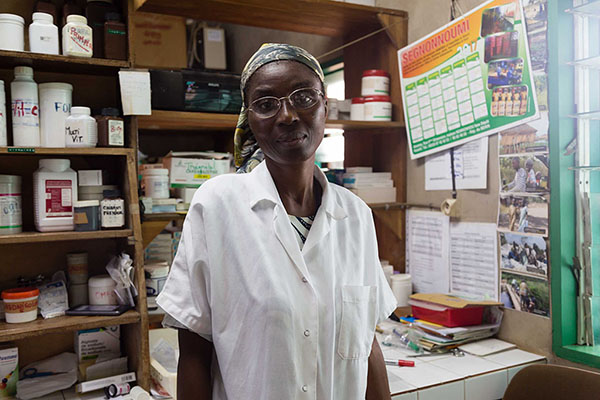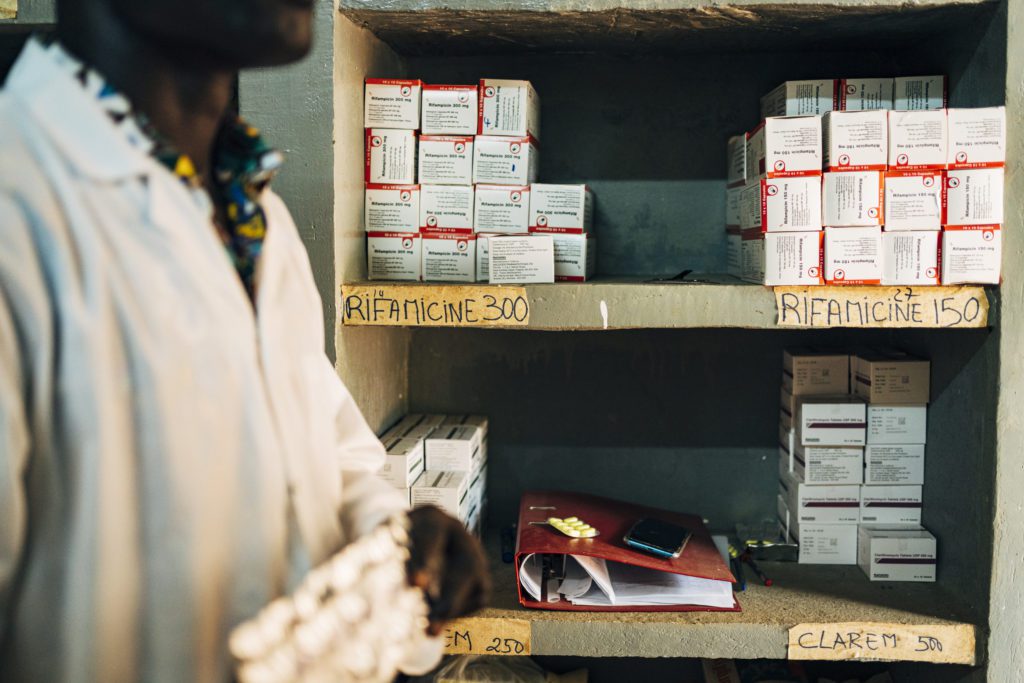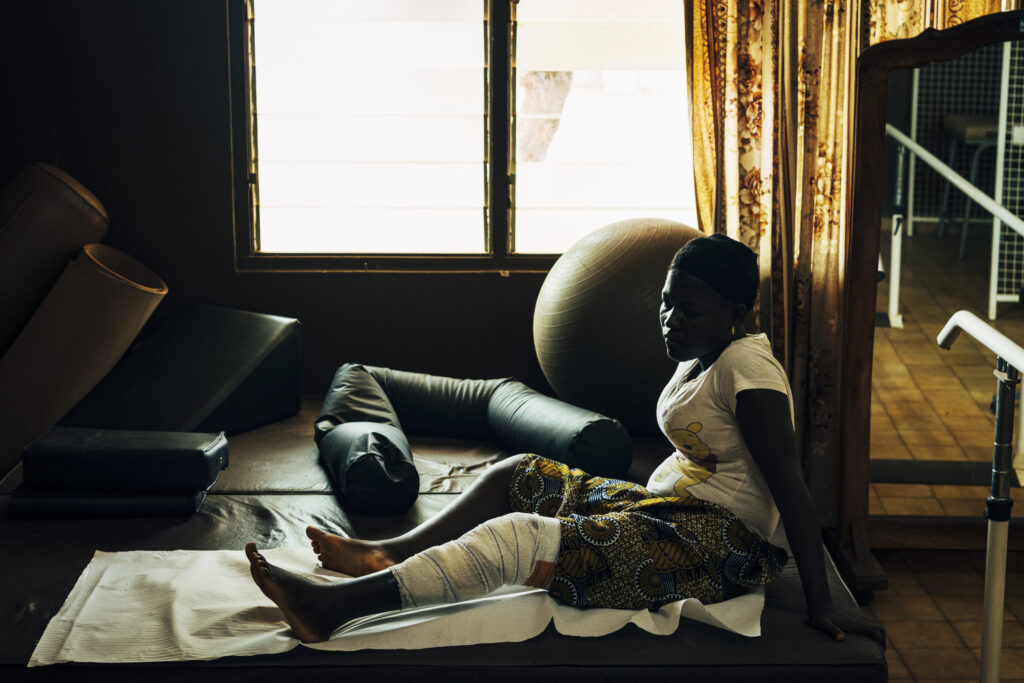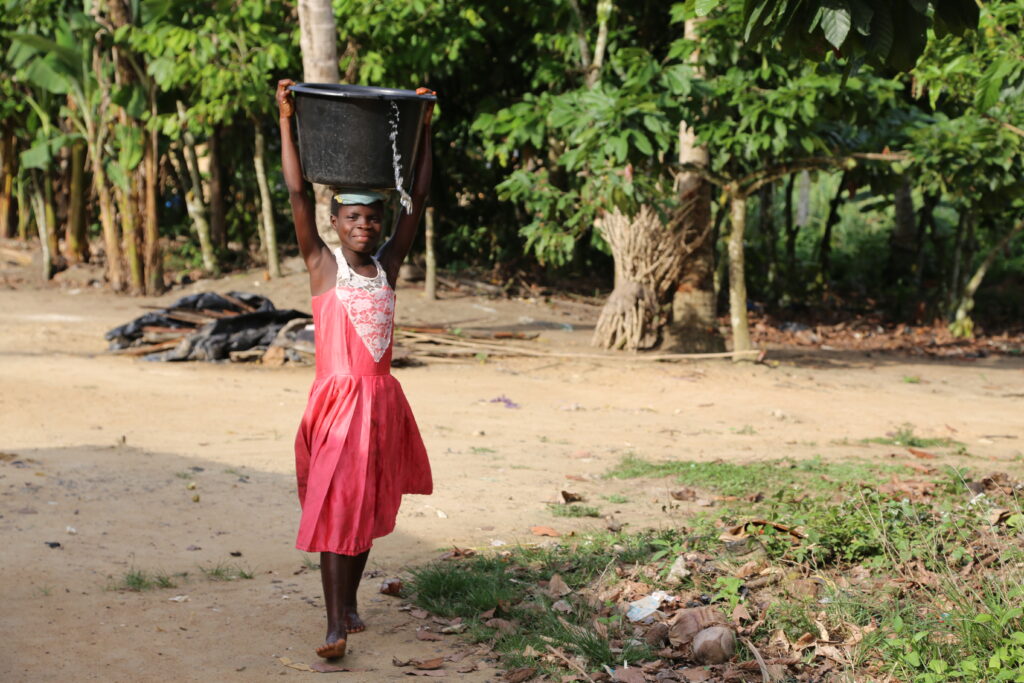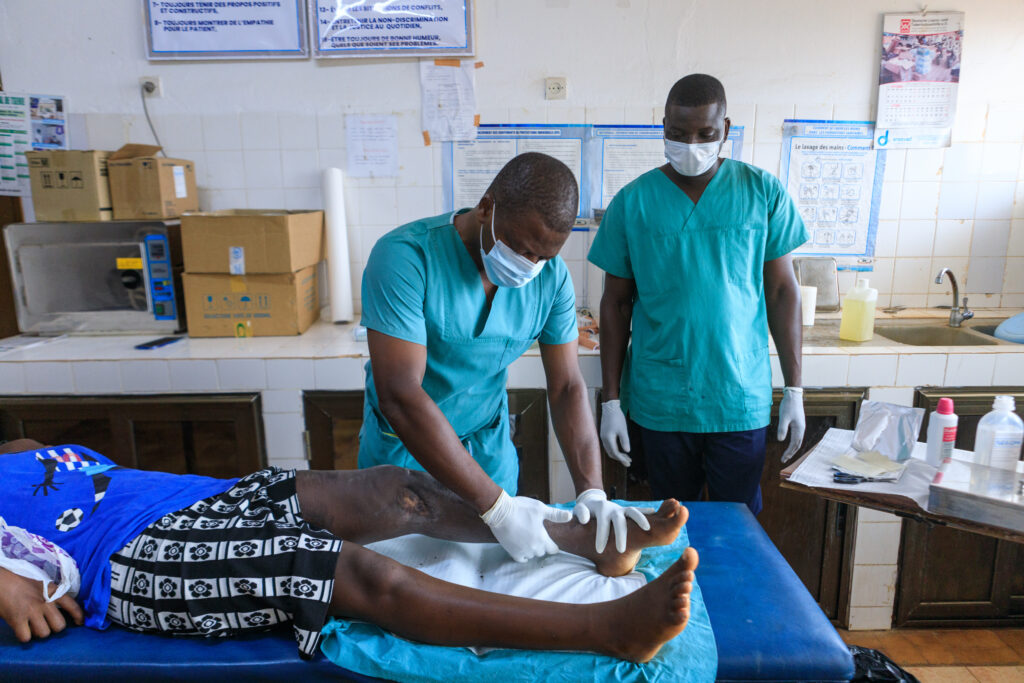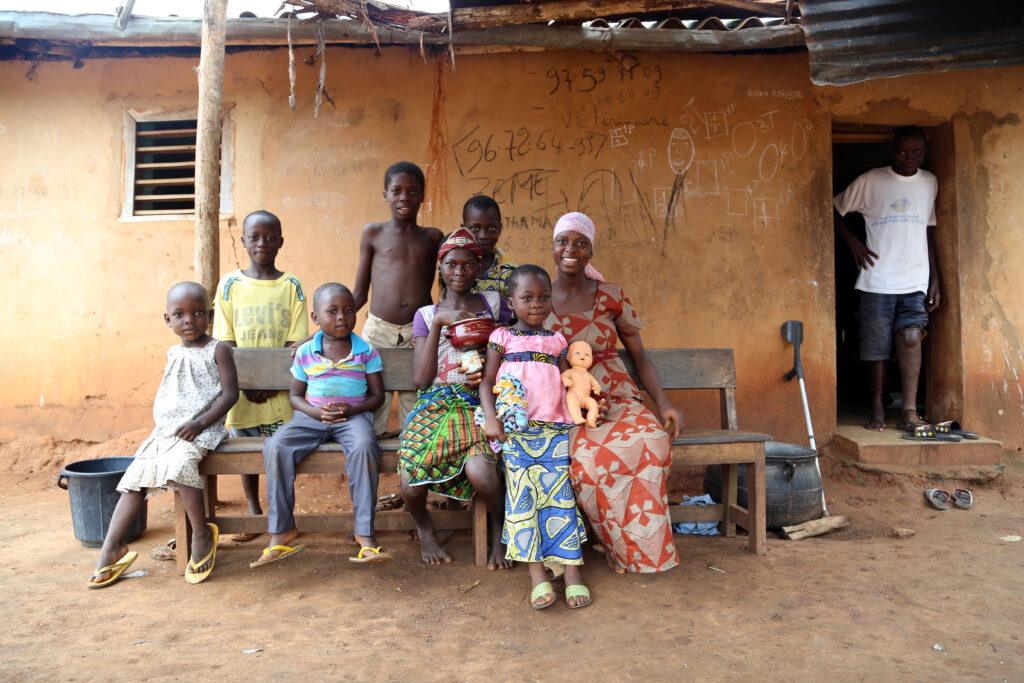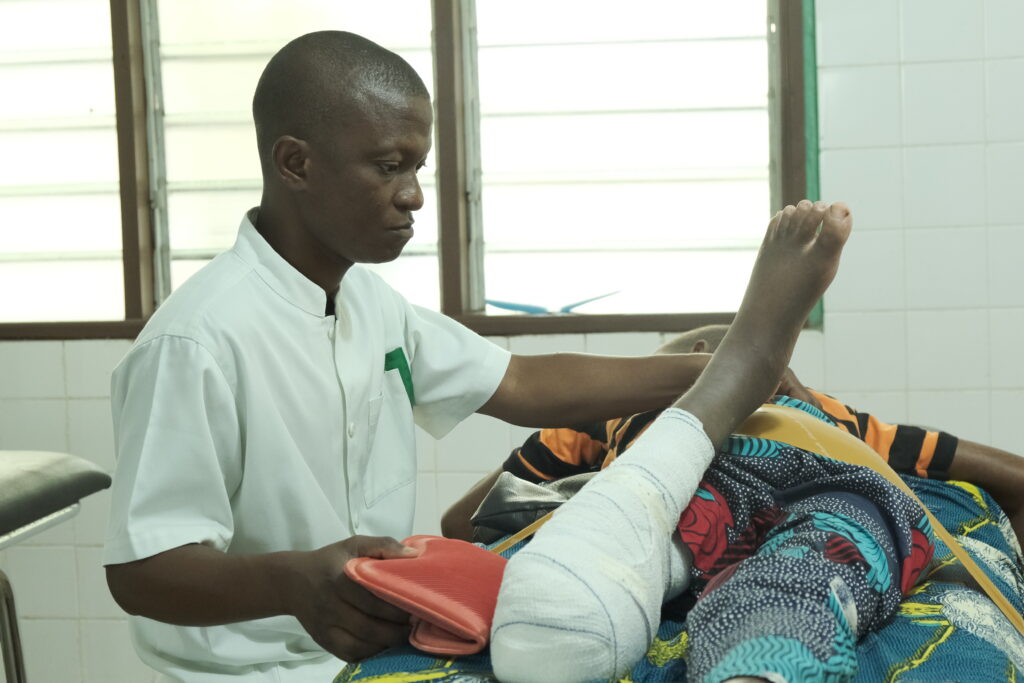Strengthening the African network of laboratories for Buruli ulcer research
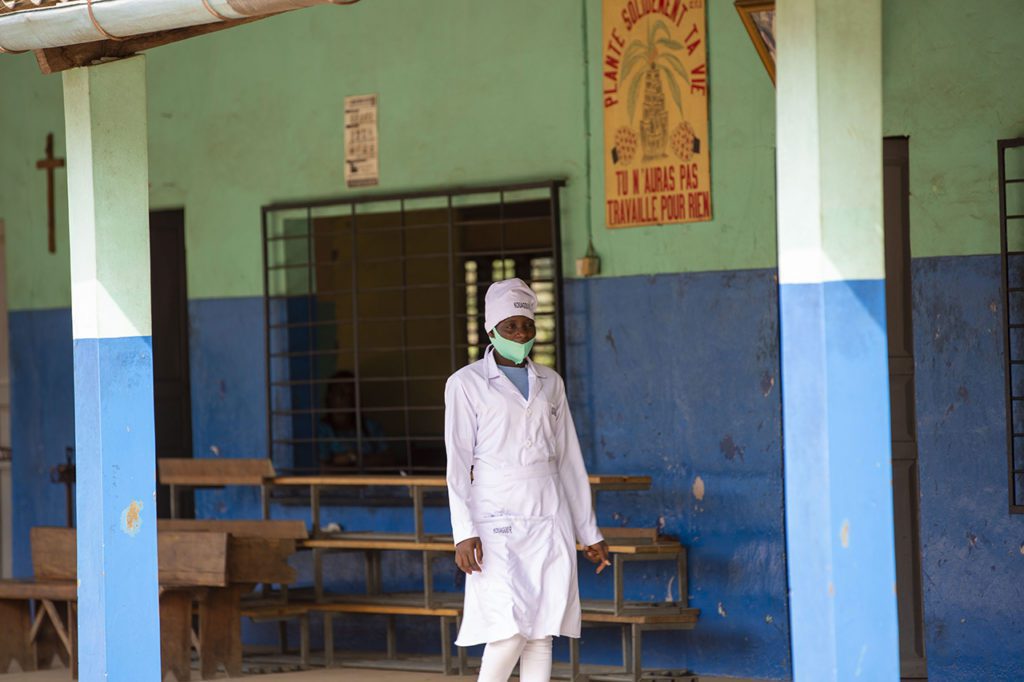
- Costa de Marfil, Ghana, Togo, Benín, Liberia, Nigeria, Camerún, RD del Congo, Gabón Country
- 384.086 € Investment
- 2021-25 Length
The challenge
There are currently no unified protocols for detecting Buruli ulcer.
Although the WHO sets guidelines for the control of NTDs, many laboratories in Africa do not have standardised protocols for sample collection and subsequent screening and diagnosis of these diseases.
This is the case for many laboratories in countries where Buruli ulcers are endemic. Low detection rates and delayed results are consequences of this lack of protocols, which hinders the control and elimination of this neglected disease.
The solution
The intervention we support is coordinated by WHO and involves laboratories in 9 countries where Buruli ulcers are endemic. Through a coordination centre we want to:
- Improve the performance of these centres involved in molecular diagnosis of the disease through standardised PCR testing.
- Establish an external quality assessment programme.
- Provide training and support to laboratory staff, facilitating the exchange of knowledge and organising interlaboratory visits.
- Promote joint research to improve diagnostic approaches to Buruli ulcer.
- Incorporate other NTDs into the network’s different laboratories under the PCR-based method for case confirmation.
- Provide the network with reagents and consumables.
Impact
Through this WHO-supported project, we will improve the PCR diagnosis of Buruli ulcer.
Through the use of standardised test protocols, the establishment of an external quality assurance programme and the exchange of knowledge between member laboratories. This initiative also envisions integrating other skin NTDs into the PCR-based platform for case confirmation.


Related projects
See other projects where we combat Neglected Tropical Diseases



